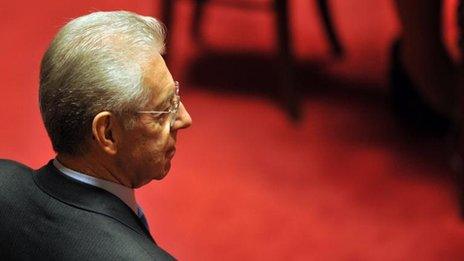Silvio Berlusconi 'to run for Italy PM again'
- Published
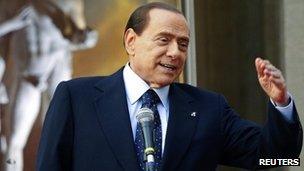
Mr Berlusconi resigned from office in November 2011
The party of former Italian Prime Minister Silvio Berlusconi has given strong indications that he will run for office again next year.
The People of Freedom (PDL) party has cancelled its leadership primary and a senior figure said Mr Berlusconi would run for PM again.
Earlier on Thursday the party abstained from confidence votes in parliament.
Prime Minister Mario Monti's government won votes in both houses, but the move plunged Italy into uncertainty.
Mr Berlusconi, 76, resigned in November 2011 over Italy's economic troubles and was convicted of tax fraud in October of this year. He is appealing against that.
He is also on trial accused of paying for sex with an under-age prostitute, in the so-called "Ruby" case. He denies wrongdoing.
Despite the veteran politician's legal battles, he plans to run again for office, according to PDL Secretary General Angelino Alfano, quoted in Italian media.
Mr Berlusconi himself also said on Wednesday that he was being "assailed by requests" to return to politics.
He has already served as Italy's prime minister for three separate terms and built up what is believed to be a vast personal fortune from his business empire.
A commentary by Marcello Sorgi in the Fiat-owned newspaper La Stampa on Friday said "political logic" was not driving Mr Berlusconi but "that mixture of intuition, a sense of adventure and a zest for challenges that has characterised him throughout his long career".
Stefano Corradino, writing in the independent daily Il Fatto Quotidiano, said Mr Berlusconi would run again "in order to save himself from the trials... and to give a bit of help to his companies".
Economic reforms
The PDL's decision to walk out of a vote of confidence is being seen as an effort by the party to distance itself from the policies of Mr Monti's government ahead of next year's election, expected to be held in March.
Mr Monti replaced Mr Berlusconi as prime minister just over a year ago, and launched a programme of reforms aimed at pulling Italy out of economic crisis.
President Giorgio Napolitano said he wanted to avoid a "turbulent" end to Mr Monti's technocratic government.
Fabrizio Cicchitto, the leader of the centre-right People of Freedom (PDL) in the lower house, said the party abstained from the vote "to show our strongly critical view of their economic policies".
But he later indicated that they would not attempt to bring down the government.
"We will do our duty to the utmost to... allow the chamber to operate," he was quoted as saying by Reuters news agency.
After the Senate vote, the centre-left Democratic Party (PD) raised the prospect of elections being called before the expected date in March 2013.
Recent opinion polls suggest that the PD currently has a comfortable lead over Mr Berlusconi's PDL.
After his latest trial in October, Mr Berlusconi said he "felt a duty to remain in politics".
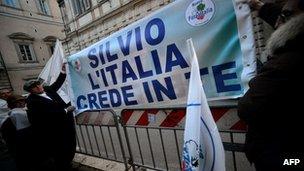
Supporters of Mr Berlusconi held a banner in Rome on Wednesday reading "Silvio, Italy Believes in You"
He later said he would not run for PM again, but appeared to row back from that position on Wednesday.
"I am being assailed by requests to return to the field as soon as possible," he said after a meeting of party leaders.
"Italy today is on the edge of a cliff. I cannot allow this," he said, claiming that the situation now was "far worse than when I left office last year".
His party later said it had called off a primary that was going to be held to decide who would lead it into a general election in the spring. According to the party, Mr Berlusconi will head its list of candidates and lead the party into the election.
In response, economic development minister Corrado Passera said it would not be good for Italy's image abroad "to go back".
Mr Monti defended the government's record on Thursday, saying it had largely succeeded in putting the country in a safe position and "preventing Italy from causing new fires in the eurozone".
- Published27 October 2012
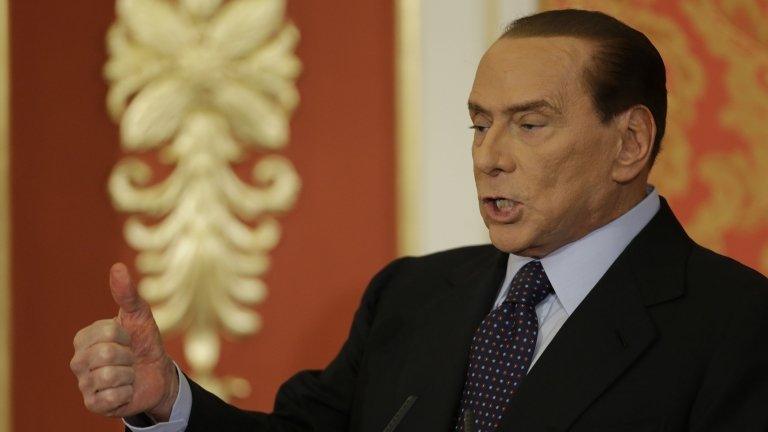
- Published3 December 2012
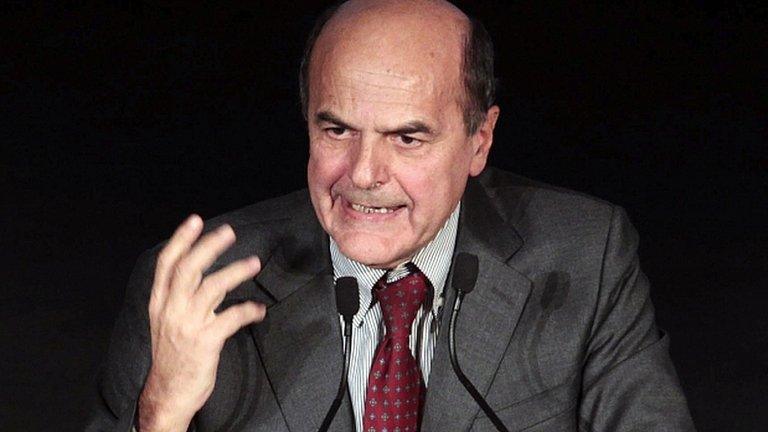
- Published29 May 2019
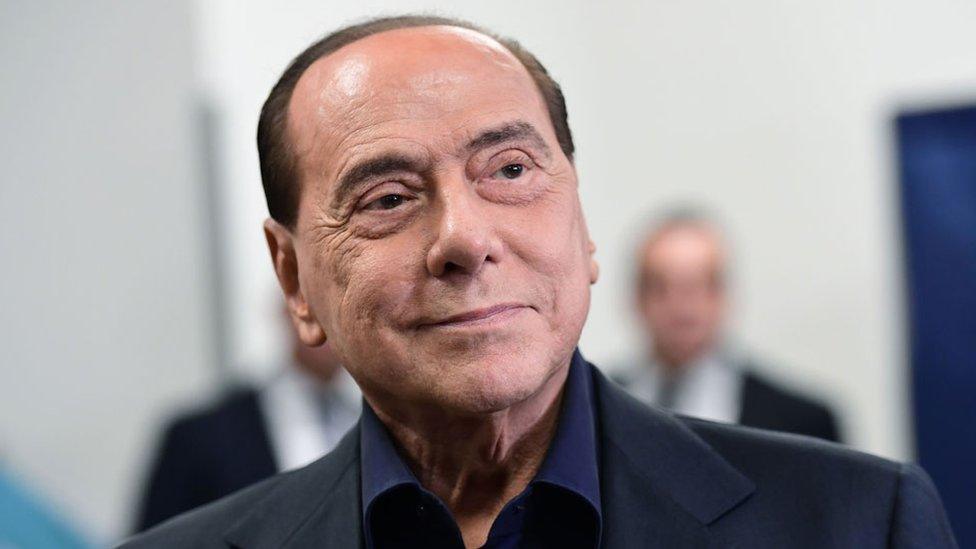
- Published18 February 2013
